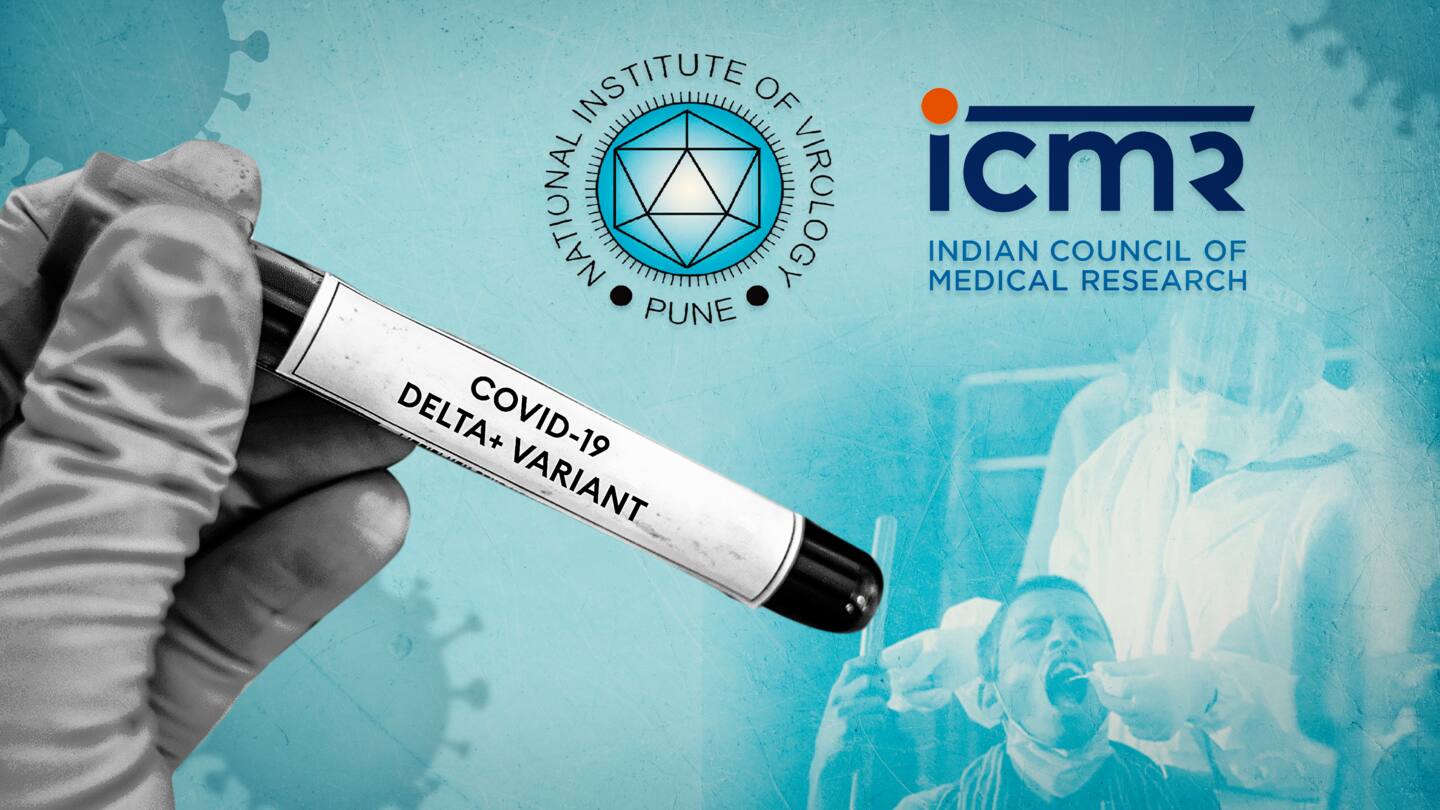
Will vaccines work against Delta Plus variant? ICMR begins study
What's the story
The Indian Council of Medical Research is studying the efficacy of the currently approved vaccines against the emerging Delta Plus variant of the coronavirus.
AY.1 or Delta Plus is a mutated version of the Delta variant (B.1.617.2), which drove India's deadly second wave of the pandemic.
Experts have flagged concerns the new strain may evade immunity from infection as well as vaccination.
Details
ICMR has collected samples of vaccine recipients for study
Dr. Samiran Panda, an ICMR scientist, said they have collected the serum samples of COVID-19 vaccine recipients and are checking their ability to neutralize the Delta Plus variant.
"We are examining samples obtained from different places to assess if they get neutralized by serum of COVID-19 vaccine recipients. Let's hope the vaccine effectiveness for this variant will continue," he told The Times of India.
Quote
'Delta Plus should behave similar to Delta variant'
"As per earlier data concerning Delta variant, neutralization was happening with the existing vaccines in India. Though neutralization has dropped, it's enough to protect...Delta Plus should also behave (in a similar manner)." Dr. Pragya Yadav of the National Institute of Virology, said.
Warnings
Variants could reduce efficacy of vaccines, experts worry
Experts have warned that the currently available vaccines may not be very effective against the newer variants.
The Delta Plus variant may be capable of evading immunity generated both from vaccination and prior infection, Prof. Shahid Jameel said, according to India Today.
American scientist Eric Feigl-Ding cited a study to say that the AstraZeneca vaccine may be only 60% effective against the Delta variant.
Details
Over 40 cases of Delta Plus detected in India
The Delta Plus variant has now been categorized as a "Variant of Concern" by the Indian government.
At least 40 cases of this strain have been identified in the country so far through genome sequencing.
On Tuesday, the Centre issued an advisory to three states with high prevalence - Maharashtra (21 cases), Kerala (three cases), and Madhya Pradesh (six cases).
Information
Panel flags 3 dangerous traits of the variant
INSACOG, a consortium involved in genome sequencing in India, said this variant has three dangerous characteristics - increased transmissibility, stronger binding in receptors of lung cells, and potential resistance to the monoclonal antibody treatment.
Third wave link
Is there a link between this variant and third wave?
Dr. Anurag Agarwal, a top doctor and genome sequencer, has said there is no evidence yet to show any link between the Delta Plus variant and a possible third wave of the coronavirus in India.
"At this point, there is no evidence to suggest that Delta Plus...has anything to do with a possible third wave," Dr. Agarwal told NDTV in an interview.
Situation
India's coronavirus situation
India had faced the world's worst coronavirus outbreak earlier this year, witnessing lakhs of cases and thousands of fatalities daily.
Daily cases in India had peaked at 4,14,000 just last month.
The situation has since improved. In the past 24 hours, the country reported 54,000 new COVID-19 cases and 1,300 deaths.
Nearly 18% of the Indian population has been partially vaccinated against the coronavirus.